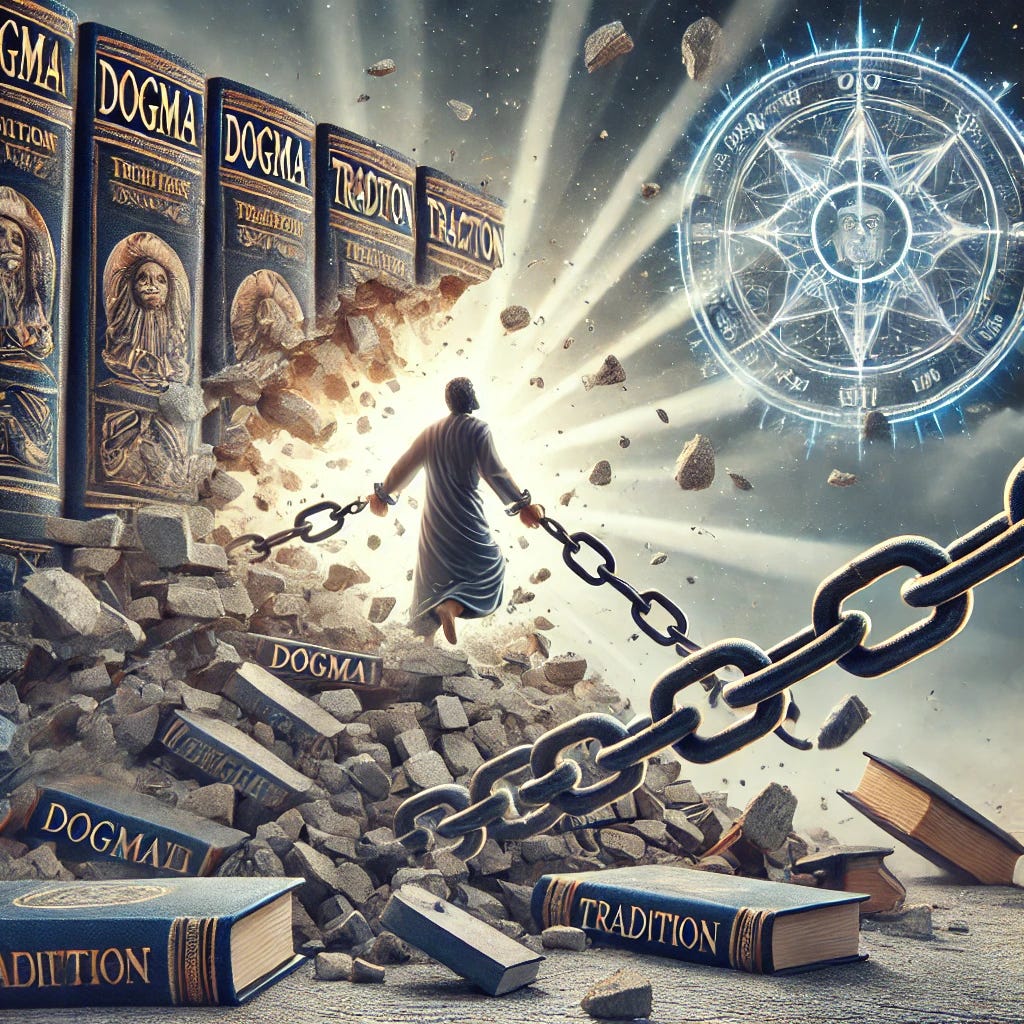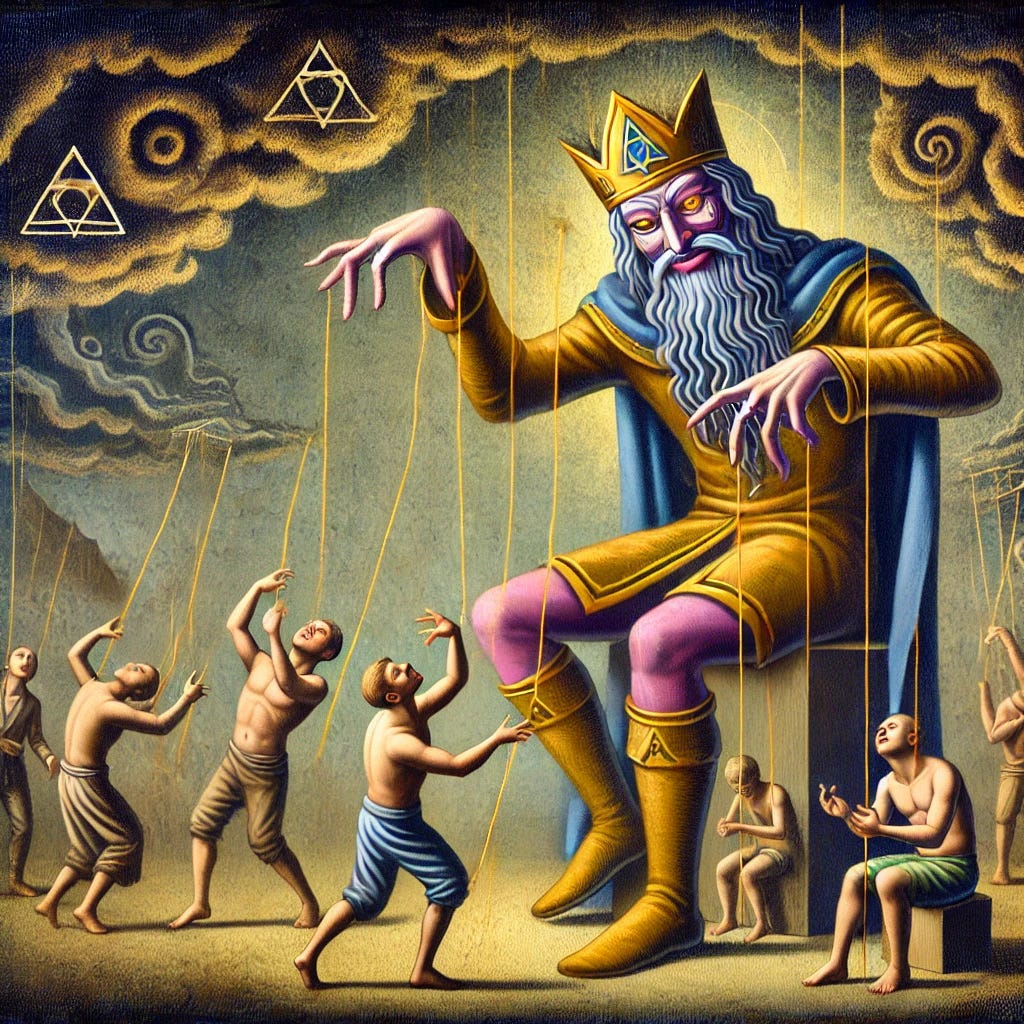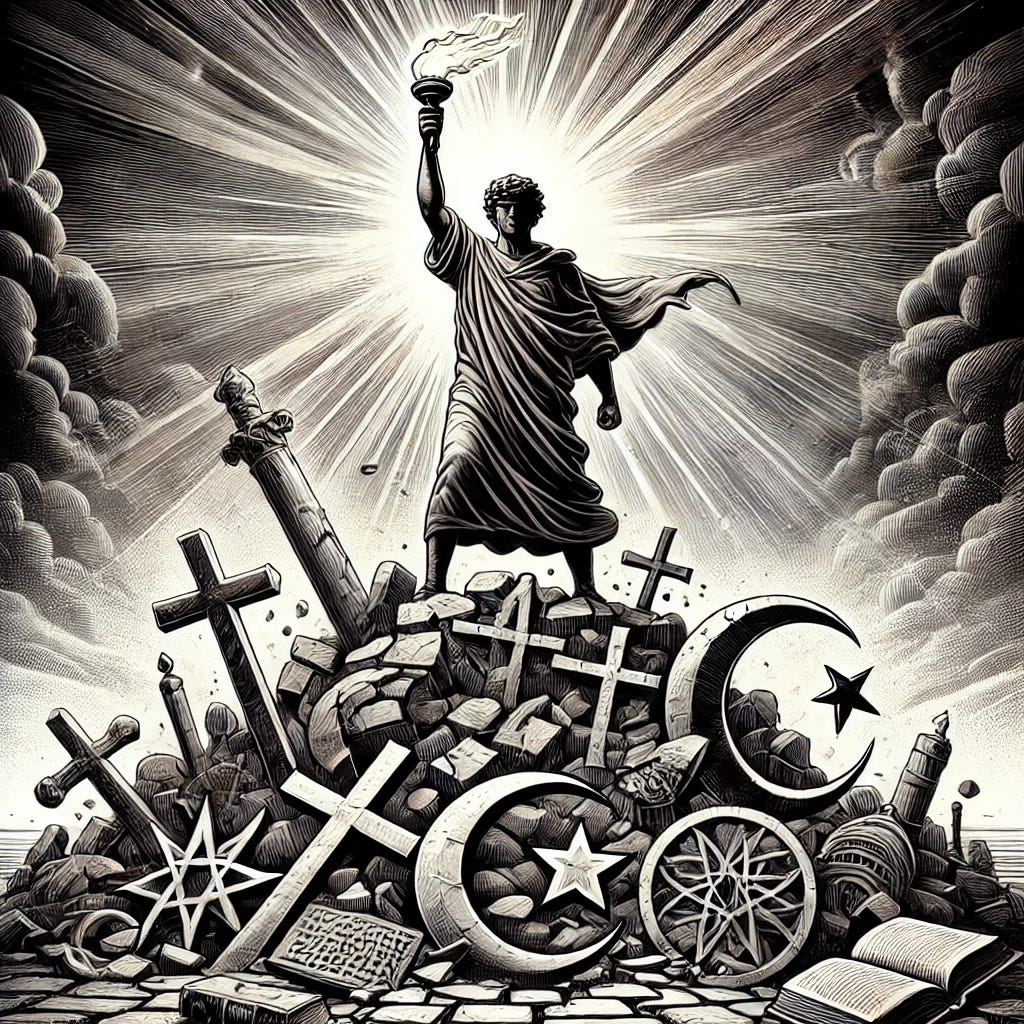Growing up in a mixed-religion and mixed-ethnicity family shaped my understanding of faith in profound and lasting ways. My upbringing was neither overtly religious nor entirely secular; instead, my parents adopted a methodical approach to my education, emphasizing the importance of free inquiry and personal exploration. From a young age, I was exposed to a variety of religious traditions and philosophical ideas, including Judaism, the Baha’i Faith, and Christianity, which both played significant roles in shaping my family’s cultural and moral landscape. However, my parents did not enforce a single worldview upon me. Instead, they encouraged me to seek out my own answers, critically examine different perspectives, and find meaning on my own terms. This journey began at the age of nine when I first encountered religion in a conscious, personal way. Over the ensuing decades, this exploration led me to an unconventional conclusion: that anti-theism is not only a valid but also an ethical position.
The Foundations of My Relationship with Religion
My mixed-religion and mixed-ethnicity upbringing meant that religious observance was multifaceted in my household. The cultural and spiritual influences of Judeo-Christianity and the Baha'i Faith wove a complex tapestry, creating a home where religious holidays, rituals, and philosophical discussions coexisted, sometimes in harmony and sometimes in tension. Despite this diversity, my parents did not impose strict doctrinal adherence. Instead, they facilitated an environment where questioning and skepticism were welcomed, and where the exploration of different religious practices and beliefs was seen as a critical component of a well-rounded education.
This approach instilled in me a deep appreciation for religious narratives, symbols, and ethical teachings, while also allowing me the freedom to grapple with the metaphysical claims that underpinned them. From an early age, I developed an understanding that religion was not merely a set of prescribed behaviors or doctrines, but a vast, interwoven network of cultural narratives that sought to explain human existence, morality, and the divine. Yet, as I delved deeper into various faith traditions, I became increasingly aware of the ethical implications of certain religious claims and practices. This awareness sparked a shift in my thinking, pushing me toward a position that I would later identify as anti-theism.
Understanding Anti-Theism
Anti-theism is more than just a disbelief in gods; it is an active opposition to theistic belief systems. Whereas atheism simply denotes the lack of belief in a deity, anti-theism goes further, asserting that the belief in gods or adherence to theistic religions is inherently harmful or misguided. Anti-theism challenges the legitimacy of religious authority and critiques the ethical and social consequences of religious doctrines, particularly those that endorse violence, suppress intellectual freedom, or impose moral constraints based on divine command rather than reasoned argument.
For anti-theists, theistic religions represent not merely an outdated worldview, but a set of ideologies that often perpetuate divisiveness, inhibit social progress, and justify moral behaviors that would otherwise be considered unacceptable. Anti-theism calls for a reevaluation of religion’s role in human life and seeks to diminish its influence over public and private spheres, advocating for a society where ethical behavior and human flourishing are pursued independently of religious dogma.
Why Anti-Theism Is the Ethical Position
My journey toward anti-theism was gradual, shaped by decades of questioning, philosophical study, and observation of religion’s impact on individuals and societies. Over time, I came to the conclusion that anti-theism is not only an intellectually defensible stance but an ethical imperative. This determination is grounded in three main contentions: religion’s history of harm, its opposition to intellectual and moral autonomy, and its role in fostering division and intolerance.
1. The History of Harm
Religious institutions have long wielded significant social, political, and cultural power, which they have frequently used to justify violence, oppression, and discrimination. From the Crusades and inquisitions to contemporary acts of terrorism and religiously motivated discrimination, the history of theistic religions is rife with examples of human suffering inflicted in the name of faith. While one could argue that such actions are misinterpretations or corruptions of "true" religious teachings, the sheer frequency and persistence of these atrocities suggest that they are not merely aberrations but are sometimes intrinsic to the doctrines themselves.
For instance, religious texts often contain passages that condone war, slavery, or punishment for apostasy. Even if these texts are no longer taken literally by all adherents, their existence within the canon of sacred literature means they can still be invoked to justify harmful actions. In this light, anti-theism argues that while religion may provide comfort or moral guidance to some, it also poses a systemic risk to human well-being. If a belief system can be readily used to justify harm, it warrants scrutiny and opposition, regardless of its potential for personal meaning or community cohesion.
2. Opposition to Intellectual and Moral Autonomy
Religion often requires the subjugation of reason and personal autonomy to the dictates of divine authority. This undermines intellectual freedom, as doctrines are frequently presented as immutable truths rather than propositions open to critical evaluation. The moral codes derived from these doctrines are likewise presented as absolutes, leaving little room for moral growth or the revision of ethical standards in light of new evidence or shifting cultural values.
Anti-theism champions a worldview in which ethics are not dictated by purported divine commandments but are derived from rational discourse, empathy, and the collective human experience. It advocates for a society where individuals are encouraged to think critically, question dogma, and develop their moral principles based on reason and compassion rather than adherence to ancient texts. Such a society would prioritize human autonomy and intellectual development, fostering environments where people can pursue the truth without fear of reprisal or accusations of heresy.
3. Fostering Division and Intolerance
Theistic religions often establish boundaries between the faithful and the non-believers, the righteous and the sinners, the chosen people and the outsiders. This inherent exclusivity can lead to a divisive worldview that engenders conflict rather than unity. Even when religions preach universal love or tolerance, their doctrines often draw lines that separate the saved from the damned or the moral from the immoral, thereby fostering an "us versus them" mentality.
History is replete with instances where religious differences have led to violence and societal fracture. While it is true that many conflicts have complex causes, religious identities frequently amplify divisions and provide justification for hostilities. By contrast, anti-theism advocates for a world where people unite around shared human values rather than religious identities. It seeks to reduce the divisive power of dogma and to promote solidarity that is based on our common humanity rather than adherence to specific beliefs.
A Personal Commitment to Anti-Theism
My arrival at anti-theism was not an abrupt rejection of the cultural and spiritual traditions I encountered in childhood but a thoughtful reevaluation of their impact on human flourishing. I still find value in the stories, rituals, and ethical teachings of Judeo-Christianity and the Baha'i Faith, but I do not see them as possessing any special moral authority or divine truth. Rather, I view them as human constructs—beautiful, inspiring, and instructive, yet also flawed and potentially harmful when taken as literal mandates for living.
The ethical stance of anti-theism is not about dismissing the experiences or faith of others; it is about opposing structures and ideologies that hinder human progress, perpetuate suffering, and constrain the pursuit of knowledge. It is about advocating for a world where compassion, reason, and open inquiry replace dogma, where morality is not imposed from without but developed from within. In this world, religious belief would not be suppressed, but its power to dictate or inhibit human flourishing would be critically examined and resisted.
In essence, anti-theism emerges as a position that seeks to reconcile the values of empathy, justice, and freedom with the realities of a diverse world. It recognizes the need for ethical structures that are both inclusive and adaptable, and it rejects the notion that any one belief system has a monopoly on truth. My upbringing may have instilled in me an appreciation for the richness of religious traditions, but it also equipped me with the tools to recognize when those traditions do more harm than good. In choosing anti-theism, I am committing to an ethical framework that prioritizes human dignity over doctrinal obedience, intellectual freedom over unquestioning faith, and universal solidarity over sectarian division.







